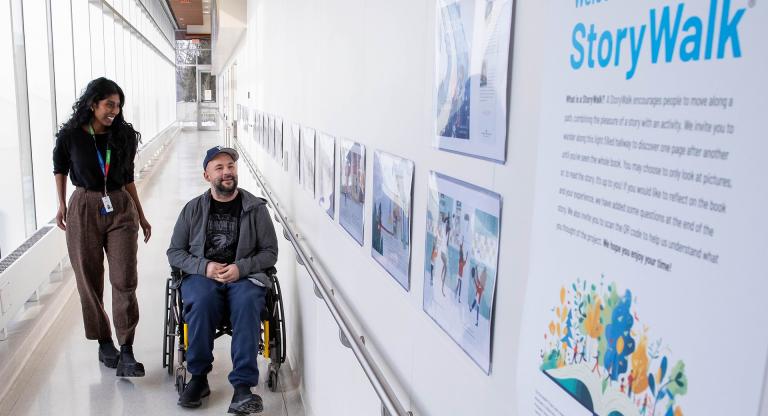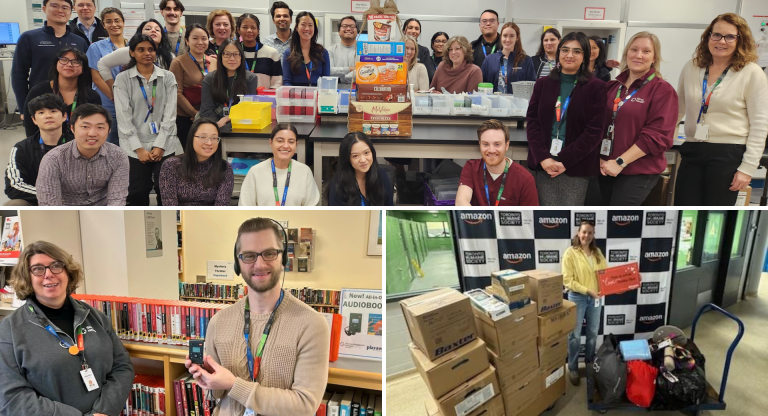Large-scale study seeks to increase access to mental health care for pregnant women and new mothers

Up to one in five women experience depression and anxiety during the perinatal period (between pregnancy and one year postpartum period).
Effective treatments, including ‘talk therapies’, exist but less than 20% of women have access to care. Accessing appropriate care is challenging, especially during the perinatal period, because of cost, stigma, childcare demands and transportation and a limited number of clinicians.
Dr. Daisy Singla, a clinical psychologist and clinician scientist at Sinai Health System, is leading an international study to examine scalable methods to increase access to one effective treatment, known as Behavioural Activation (BA). BA is a brief, six to ten session, talk therapy that focuses on increasing enjoyable and fulfilling activities to align with one’s own values. It has been proven as effective as longer courses of treatment and antidepressants, and has been delivered in multiple contexts by non-mental health specialists including nurses, midwives, lay counsellors and even peers. Building on a rapidly growing body of evidence supporting non-specialist delivered treatments, Dr. Singla’s study aims to increase access to care by expanding the circle of providers who provide therapy beyond clinical psychologists and psychiatrists.
“BA is an effective treatment tested around the globe that is relatively easy to learn and easy to teach. In line with our existing research involving non mental health specialists, we will train frontline nurses and see if they can deliver this treatment as effectively as specialist psychiatrists. If they can, we could increase access to effective care and ultimately target the significant burden of perinatal depression and anxiety,” explains Dr. Singla.
The study is also looking at whether this treatment delivered remotely, using technology such as telemedicine, instead of requiring a new mother, whose hands are already full with her newborn, to physically come in for an appointment. Mount Sinai Hospital’s Perinatal Mental Health team, led by Dr. Ariel Dalfen (an investigator on the current study) provides telemedicine appointments by connecting clinicians with patients via their home computers.
“Telemedicine is another tool to increase access to care. We’ve seen it work across a number of disciplines including mental health. We want to see if BA delivered via telemedicine can be as effective as in-person treatment. Moreover, we want to provide a treatment that is acceptable and accessible for the women we serve,” says Dr. Singla.
The SUMMIT Trial, led by Dr. Singla (PI) and Dr. Samantha Meltzer-Brody (co-PI; University of North Carolina), involves a large, global team of investigators and collaborators including patient advocacy groups such as Postpartum Support International. To date, it promises to be the largest psychotherapy trial for perinatal populations; as the study expects to recruit over a thousand patients from Toronto, Chicago and North Carolina. The study is made possible by $12.7 USD in funding from PCORI, an independent nonprofit organization focused on funding research that provides patients, their caregivers, and clinicians with the evidence-based information needed to make better-informed healthcare decisions.
“The ability to attract this type of support for research in an important area of care speaks to Dr. Singla’s strong vision and outstanding research trajectory,” said Dr. Lesley Wiesenfeld, Chief of Psychiatry at Sinai Health System.
Dr. Singla has worked extensively in low to middle income countries as a global health researcher. She has collaborated with the World Health Organization and many other NGOs working with communities in countries such as India, Kenya, Uganda, Bangladesh, and Ethiopia to improve mother and child health outcomes. She is among the youngest researchers to receive a large PCORI award.
Dr. Jim Woodgett, Director of our Lunenfeld-Tanenbaum Research Institute, commented: “This project is a major undertaking and we are all very excited to be supporting this international collaboration, which we really do believe will improve outcomes for mothers”.












